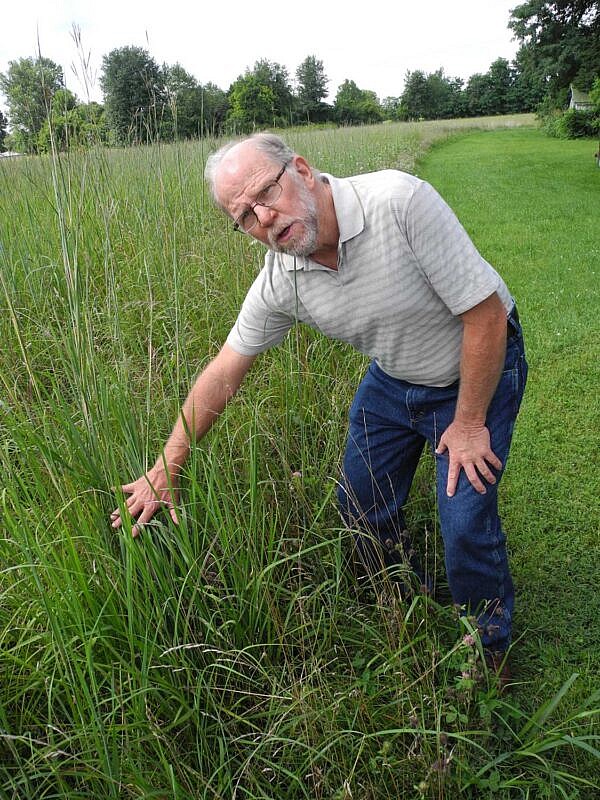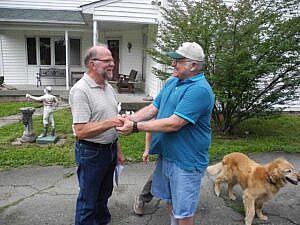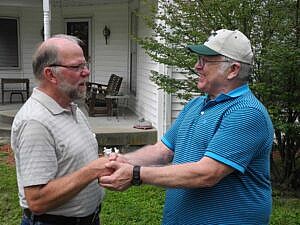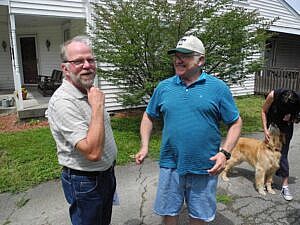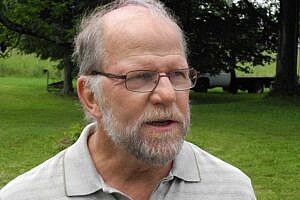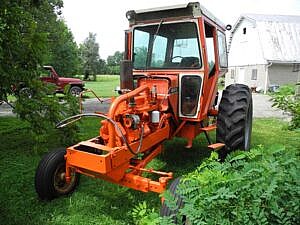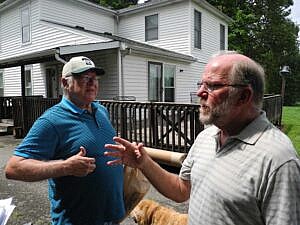Yet both are living in Louisville and have the same Kaelin great-grandparents. Given the large offspring of John Martin and Katharina Kaelin, that’s quite possible, David observes. “I am incredibly delighted to get to know you, Peter.”
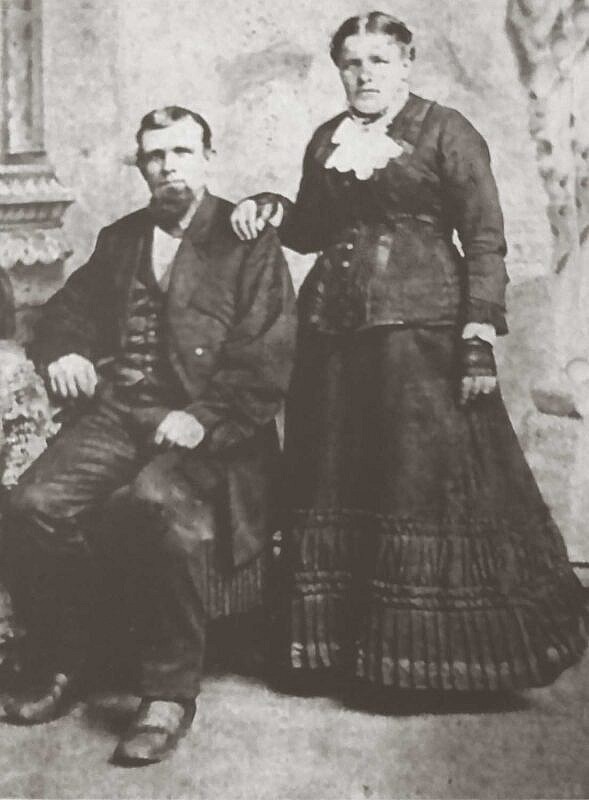
David Kaelin’s forebears, John Martin Kaelin and Katharina Kaelin, had emigrated from Einsiedeln to Louisville in the 1860s. Soon after, they would raise a family of twelve children and manage a farm - and both were to pass away within three months, in 1884, poisoned by bad water from their own fountain. “A terribly sad family history and our common roots: Peter’s grandmother was the oldest of those orphaned children, Josephine. And my grandfather the ninth child, Benedict Martin Kaelin senior. Josephine, at age 17, married the Louisville immigrant from Oberegg, Martin Joseph Schoenbaechler in 1868. And the eleven orphaned children - among them my grandfather Benedict Martin - were growing up in St. Joseph’s Orphanage Home.”
Later, David’s grandfather was able to buy a milk farm at Preston Street and Locust Lane in Louisville, managing it with his wife, Pauline Graf, of German origin, whom he married in 1907 at the town’s St. Phillip Neri’s Catholic Church.
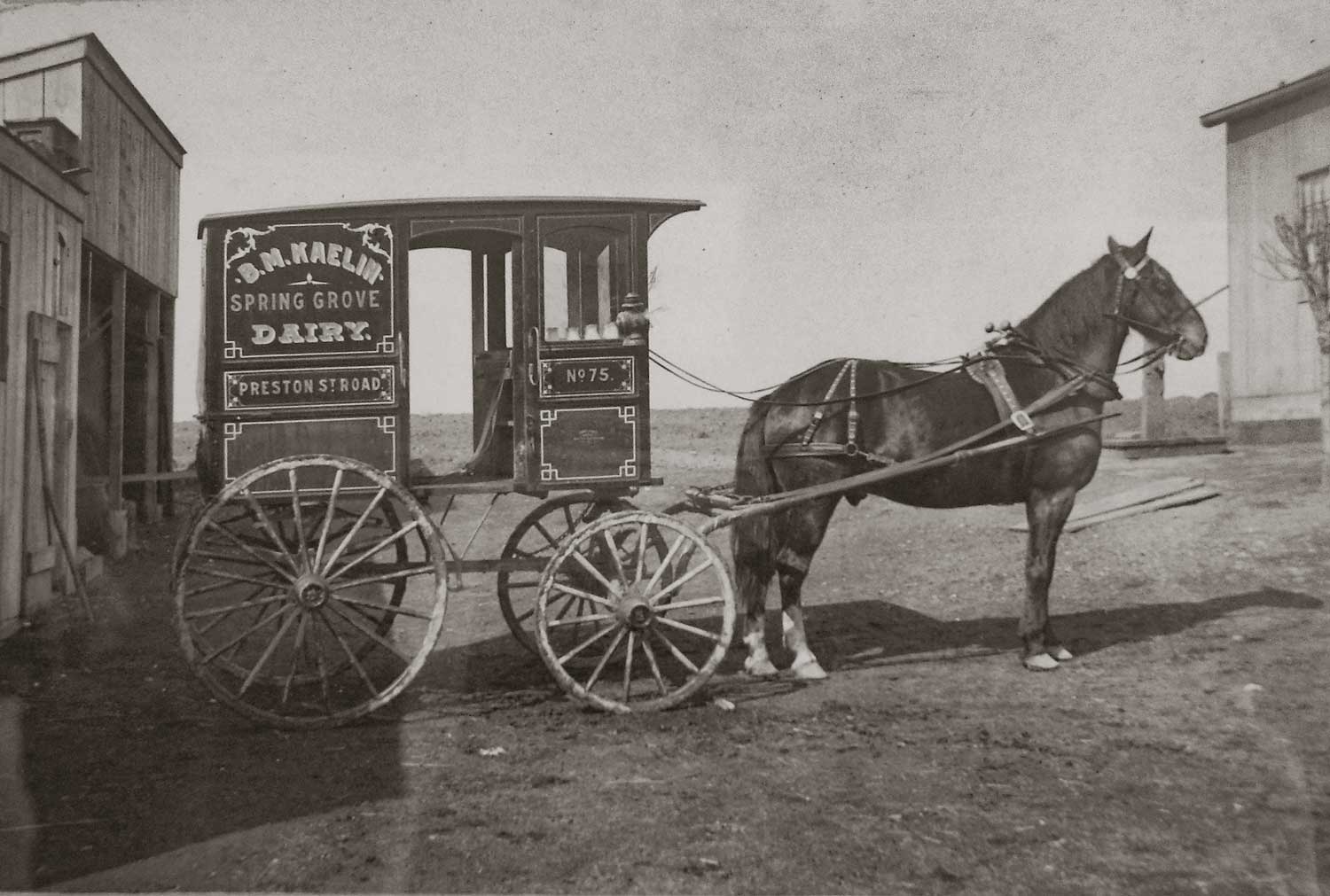
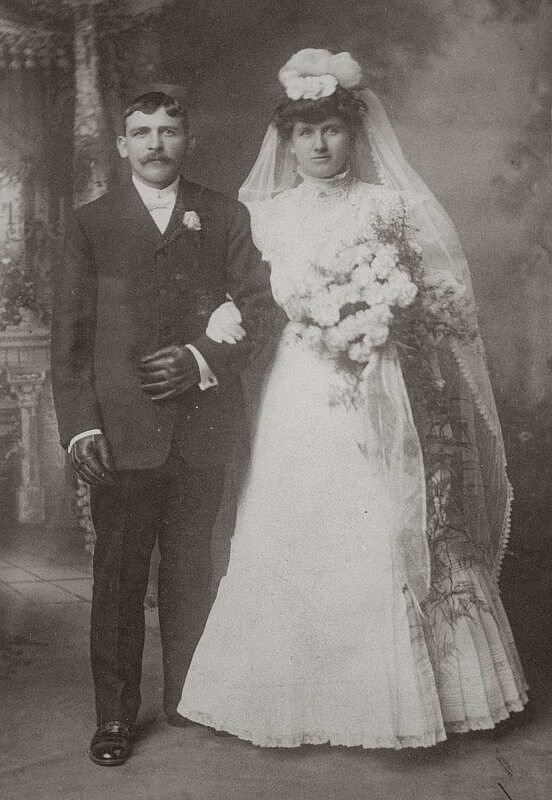
Their business was called Spring Grove Dairy, and the milk sold by horse-drawn wagon all over Louisville. David Kaelin: “To this day the farming heritage of my forebears runs in my blood. My father Benedict Martin Jr., born in 1915 as the middle of three children and only son, then grew up on the farmstead at Shelby Street near St. Martin of Tours Catholic Church. At that time, there were farms of Einsiedeln immigrants everywhere. It was only later, in 1950, when my parents bought the farm where I and my family are still living, somewhat outside the city of Louisville. I remember that at times my father had more than 300 pigs and always many cows.”
David Kaelin’s fields and meadows are green and green-blue as far as one can see. The “Native Indian Blue Grass” is thriving on the 60-acre farm. “Just like at the time when Indians were living here with their buffaloes. Native Americans knew precisely how one was to manage. Therefore, I have sown that grass again. The bluish shining grass has quite deep roots and grows like crazy even during a dry spell in hottest Kentucky-August. And it is paradise for birds and rabbits. All around us very old trees are standing; the Catalpa tree is my most beloved.”
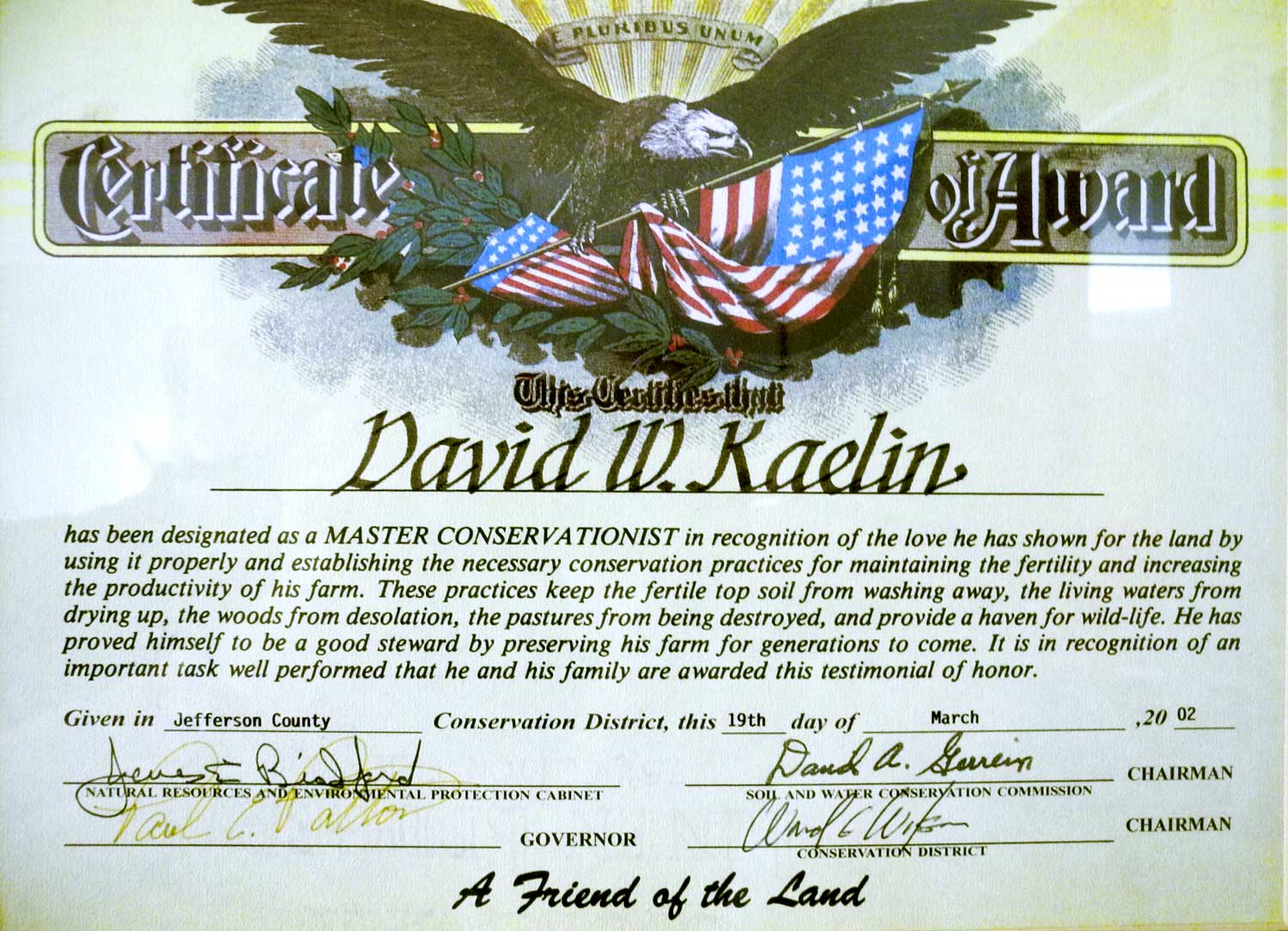
David grows enthusiastic. One can feel it, he loves nature. However, he doesn’t have cows anymore in the barn, but mainly sells the hay made on the farm, and in between he may again repair old automobiles or take care of his 1965 Chevrolet! But he is farmer through and through and, being Chairman of the Jefferson County Conservation District, stands up for sustainable agriculture as well as soil and water protection. “Music plays a big role in our family.” Daniel played violin in the school orchestra. He now plays for his own son, Guy Kaelin. And Walter, his older brother, has his own Blues and Rock Band, the Muddy Waters.
His roots in Einsiedeln, furthermore, are important for David, although he has never been there. “I have been in all the National Parks of the United States. But I don’t want to go beyond the continent. Some years ago, my wife Eileen and our son Walter had been tracing my ancestors in Einsiedeln. At the travel bureau they gave her the telephone number of a certain Susann Bosshard-Kälin in Egg - you must talk with her! But they didn’t do it… but I make up for it today! For me, Switzerland symbolizes peace and peaceful people who keep calm also under pressure. That Swiss virtue I want to live myself.”
